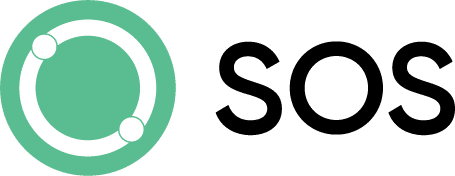
Customer service success in legal tech
Client success consultants from SOS Legal outline the key aspects of their role and their expected impact on perception of technology value.
In the world of legal technology, providing exceptional customer service is paramount. Law firms depend on their software providers, not only for cutting-edge solutions but also for unwavering support to ensure these tools are used to their fullest potential. At SOS, client success consultants (CSCs) play a critical role in achieving this objective. In a recent interview, Amy Nicholson, Probal Nath, Connie Pearce, and Natalie White shared their perspectives on the importance of good customer service and the impact of their roles in the legal technology industry.
Understanding the role of a CSC
Nicholson highlights that the primary function of a CSC is to ensure clients derive maximum value from their software. “We are their primary contact,” she explains, “using various methods to gather and provide information, including conducting health checks, and executive business reviews for enterprise clients.” Nath elaborates on this by emphasising that the goal of CSCs is ”to help clients run their legal processes efficiently and stay competitive in the market which involves monitoring user proficiency, offering necessary training, and ensuring clients are aware of the latest upgrades”.
White highlights that the role of a CSC is distinctly advisory. “It’s about building a strong relationship with the client,” she explains, “being proactive rather than reactive, aiming to understand and anticipate client needs to continuously provide value.” Unlike account managers, who typically engage with clients during financial transactions or problems, CSCs serve as advisers. “We meet with clients regularly to keep them informed about new features and functionalities, ensuring they are always getting the most from our software,” she adds.
The importance of the CSC role
Pearce believes the visibility that CSCs provide is crucial. “Clients might be using the software without realising there are updates or new features available,” she notes. By understanding specific uses and needs, CSCs can offer tailored advice to enhance their operations. Nicholson adds that being non-commercially driven ensures the advice given is purely for the client’s benefit, helping to build trust.
Defining good customer service in legal tech
Good customer service in the legal tech industry, according to Pearce, involves being knowledgeable and proactive. “Understanding the client’s area of practice and the unique challenges they face allows us to recommend the right tools and services,” she explains. Nicholson agrees, emphasising the need to understand each firm’s unique processes.
Building a rapport with clients is also crucial. “Being approachable and open allows us to deliver better service,” says White. “Onsite visits are particularly effective for this, helping us to connect on a personal level and better understand client needs.”
A focus on proactive engagement and relationship-building is essential. “Having an open and honest relationship with clients helps us to identify knowledge gaps or address difficulties without them escalating,” says Nicholson. Pearce adds that being the client’s voice within SOS is essential for ensuring needs are met and any concerns addressed promptly.
Measuring and enhancing client value
The health check service is a primary tool for measuring the value clients derive from software. “While we don’t have direct metrics, our health checks provide us with a comprehensive overview of client usage and proficiency, guiding our support and training efforts,” notes Nicholson. “This detailed survey evaluates various aspects of software use and identifies areas for improvement. We create an action plan based on the health check results to enhance user efficiency and satisfaction.” Regular touchpoints and careful listening to client feedback further refine and improve service delivery, enabling CSCs to tailor their advice to each firm’s specific needs.
From conducting health checks, to advising on specific modules or apps, CSCs have numerous examples of how they’ve helped clients to optimise software use. “Clients often see improved efficiency after adopting our recommendations,” adds White. “We also guide clients on which new modules to integrate or learning resources to follow.”
Representing clients and the feedback process
CSCs are perfectly placed to represent the end client — an advocate for their ideas, requests and concerns, so to speak. “Whether it be to the help desk, product team, scripting team or executive team, being able to feed back to key departments at SOS on behalf of our clients is vital,” says Nicholson. This advocacy ranges from suggesting software enhancements to escalating urgent issues for timely resolution.
Effective feedback mechanisms are crucial for continuous improvement and rely on open communication as they enable the company to react quickly and take immediate action if necessary. Nicholson highlights: “We’re continually finetuning our efforts and ways by which we gather client feedback, so that we can stay aligned with client needs and expectations.”
The Ideas Hub: A platform for client innovation
One of SOS Legal’s most innovative customer service features, launched recently, is the Ideas Hub. Accessible via an online client portal, the platform allows clients to submit their ideas for new features, improvements and integrations. “The Ideas Hub is a fantastic way for clients to directly influence our product development. They can propose new ideas, vote on suggestions from other users, and see which ideas are being implemented,” explains Nath. This not only empowers clients, it also ensures that the software evolves in a way that meets their real-world needs. “It’s a two-way partnership,” adds White. “Clients are heard and valued, their input can lead to tangible changes in the software they use daily.”
In today’s rapidly evolving and competitive legal landscape, providing excellent customer service in the legal tech industry is about more than just solving problems; it’s about building partnerships, understanding needs unique to each client, and proactively enhancing their software experience. Through dedicated CSCs, comprehensive health checks, and innovative tools like the Ideas Hub, SOS Legal is working towards ensuring clients receive the best possible support, helping them to achieve greater efficiency, competitiveness and success in their legal processes.




